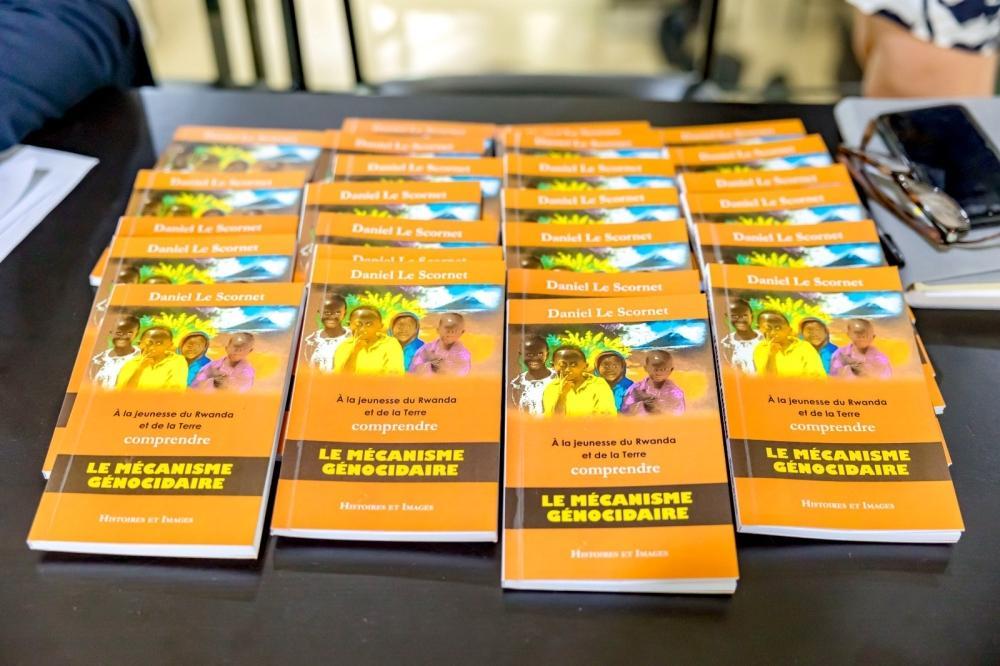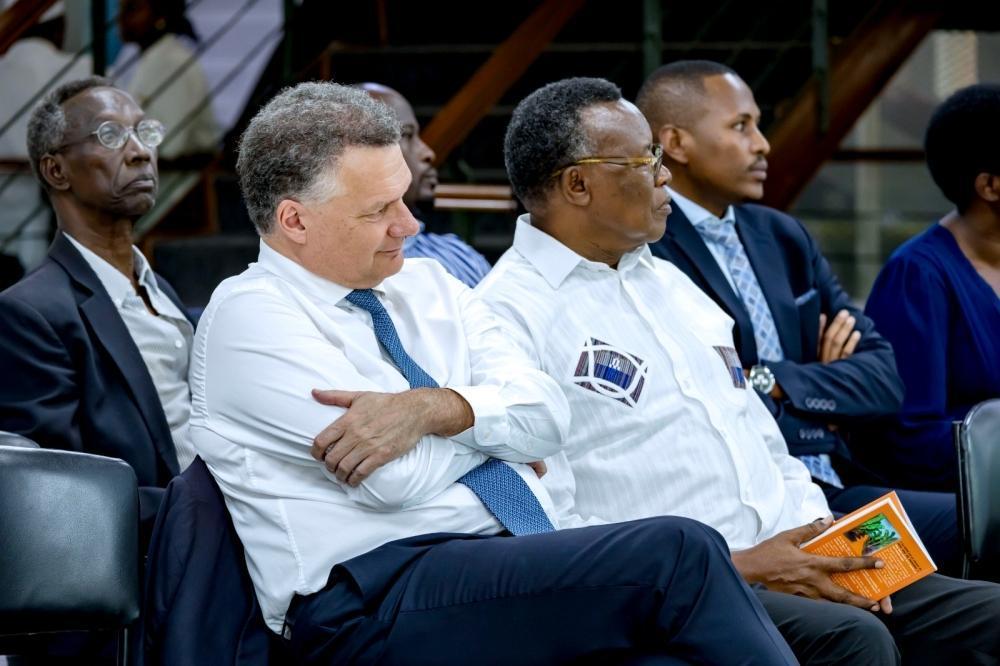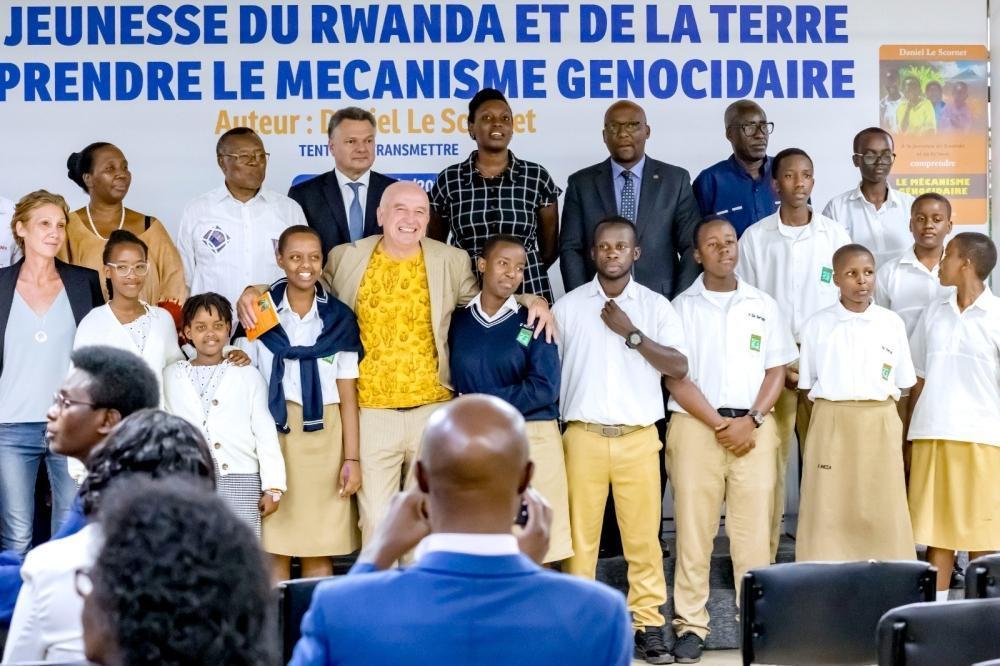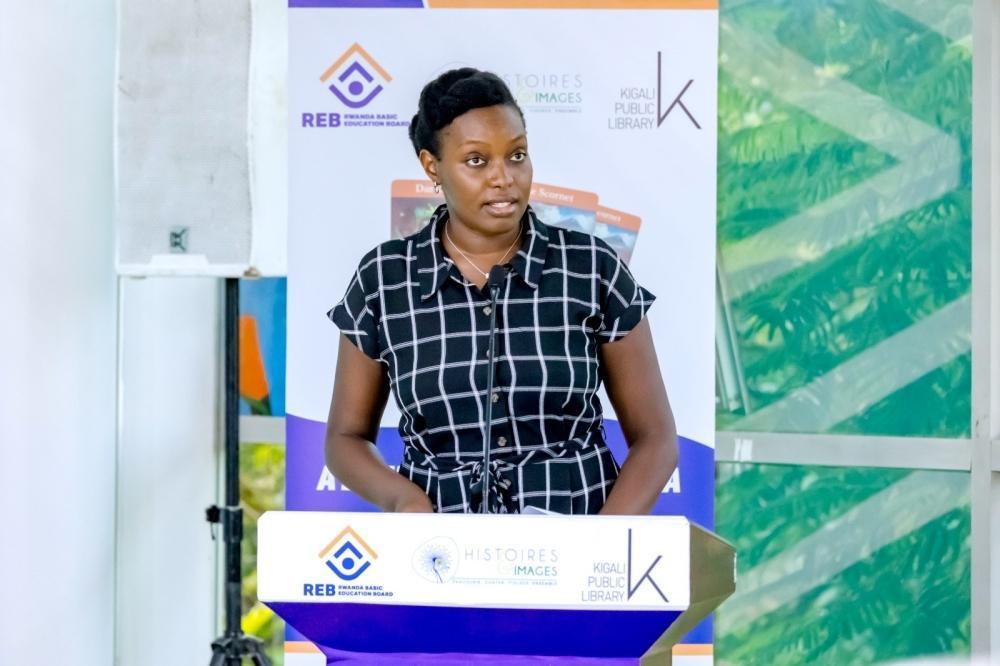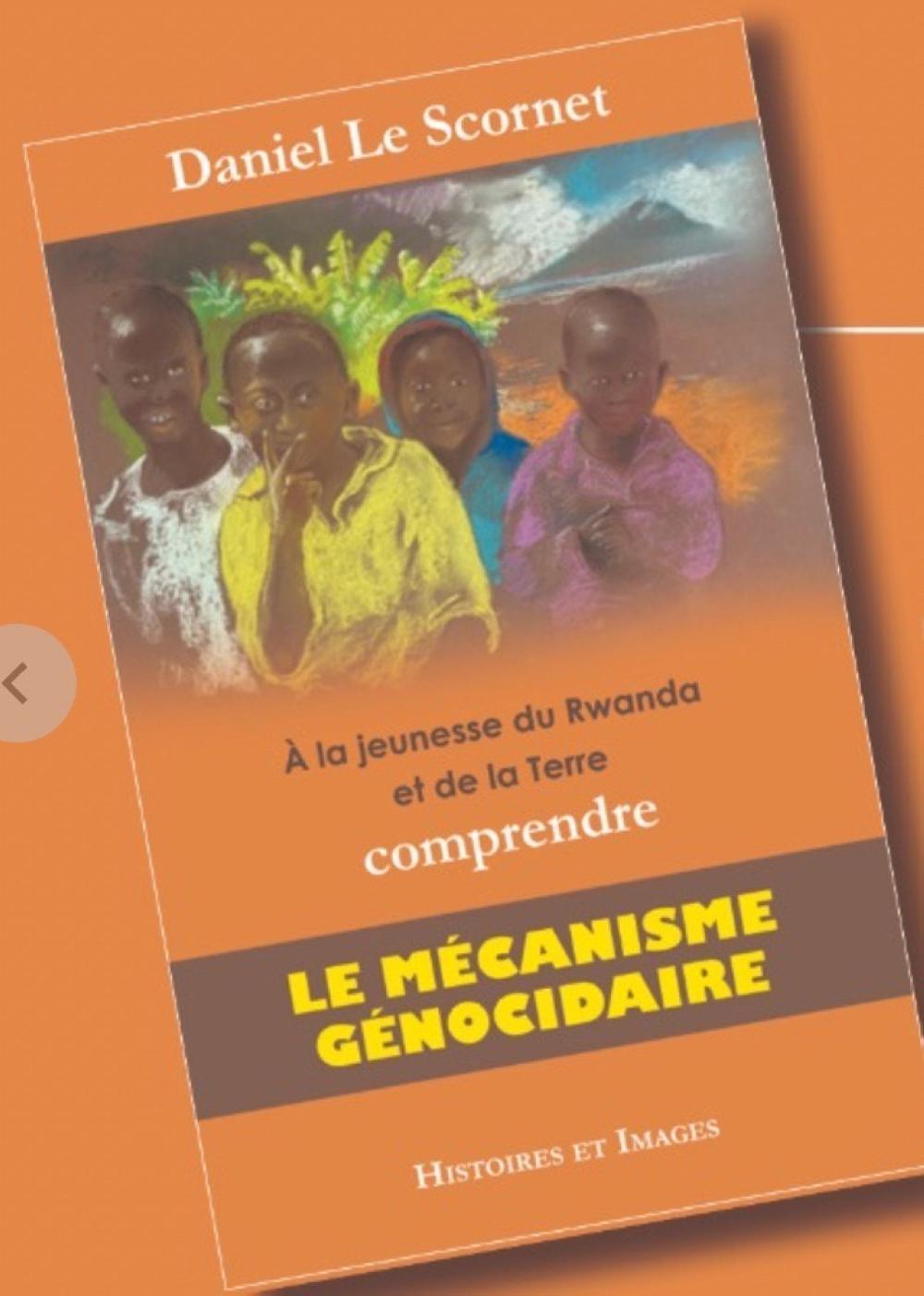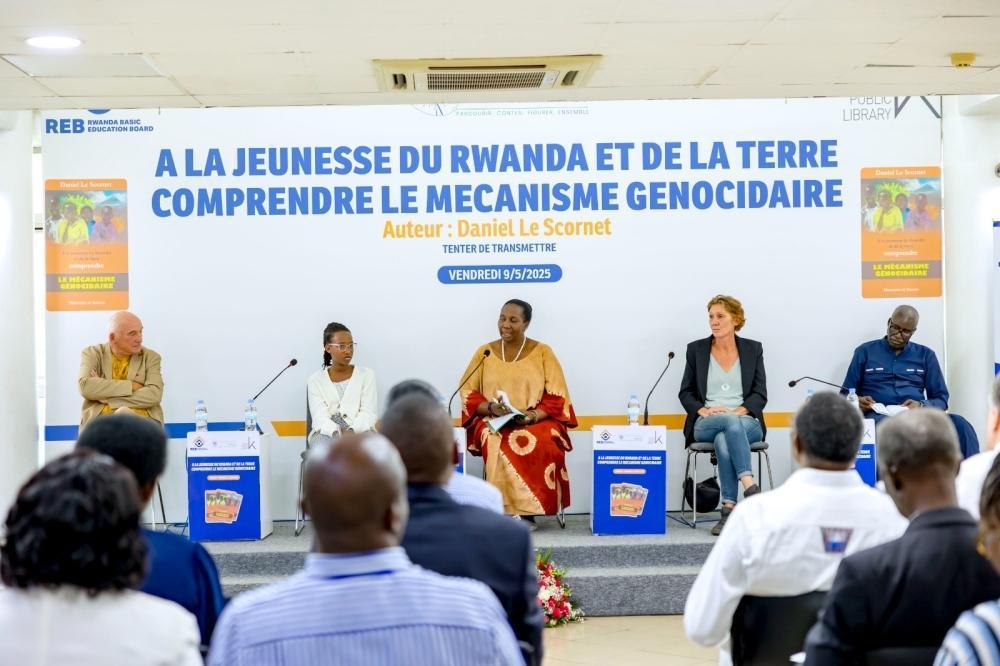Africa-Press – Rwanda. Blending personal testimonies, historical insights and the need to educate young Rwandans about the roots of the 1994 Genocide against the Tutsi, a new book offers tools to understand the roots of genocide and resist its resurgence.
Titled “À la jeunesse du Rwanda et de la Terre: Comprendre le mécanisme génocidaire” (“To the Youth of Rwanda and the Earth: Understanding the Genocidal Mechanism”), the book by French-Rwandan writer and genocide researcher Daniel Le Scornet, was launched on May 9 at the Kigali Public Library, in an event that was attended by government officials, students, parents, teachers, school leaders, and education officials.
“Many survivors have told me how hard it is to explain the genocide to their children,” said Le Scornet at the event. “It’s a history so traumatic, yet so essential to understand—not just for Rwandans, but for young people everywhere.”
French ambassador Antoine Anfré was among delegates who attended the launch.
The book serves as an educational resource and a call to action, inviting young people not only to remember Rwanda’s tragic past but to take an active role in building a future grounded in truth, peace, and human dignity.
Le Scornet explained that the book centers on the experiences of children during the Genocide against the Tutsi, showing how their instincts, resilience, and imaginations differed from adults in times of crisis.
The book that was written by French-Rwandan writer and genocide researcher Daniel Le Scornet, was launched on May 9 at the Kigali Public Library.
“Children survived in ways unique to them through disobedience, through creativity, and the book starts from their point of view to help today’s youth connect with that reality, not only as a tragedy, but as a lesson in resistance, identity, and survival,” he said.
Le Scornet hopes to make the genocide history more accessible and meaningful to new generations in a way that teaches the right lessons for the genocide that claimed more than one million live.
“The goal isn’t just to remember,” he said. “It’s to equip young people with the ability to recognize hatred, to stand up against exclusion, and to carry forward a culture of peace. This book is for every child, no matter their background because in Rwanda everyone carries this history,” he noted.
During the launch, students, parents, teachers, and school leaders took part in the discussions about the book’s message, as educators highlighted its contribution to teaching history and promoting peace among youth.
The Minister of State in the Ministry of Education, Claudette Irere, recognised the book as an educational tool that goes beyond historical facts to instill values of peace, tolerance, and humanity in the youth.
“One of our biggest challenges today is the lack of resources that speak to young people about the Genocide against the Tutsi,” said Irere.
The Minister of State in the Ministry of Education, Claudette Irere speaks at the launch
“This book fills that gap, and integrating it into our education system, we will be helping students to understand the warning signs of hatred and give them the tools to resist it,” she said.
The minister emphasized the government’s commitment to nurturing responsible citizens and educational resources like Le Scornet’s boos are essential in helping teachers explain the Genocide against the Tutsi in ways that young people can understand and learn from.
Irere also noted that the book contributes to Rwanda’s collective effort to preserve memory and prevent future atrocities.
To reach a broader audience, especially young readers and educators who primarily use English in Rwandan schools, the book, originally published in French, will also be available in English starting in July, according to the author.
The new book is titled À la jeunesse du Rwanda et de la Terre Comprendre le mécanisme génocidaire (To the Youth of Rwanda and the Earth Understanding the Genocidal Mechanism)
The book serves as an educational resource and a call to action, inviting young people not only to remember Rwanda’s tragic past but to take an active role in building a future grounded in truth, peace.
For More News And Analysis About Rwanda Follow Africa-Press

